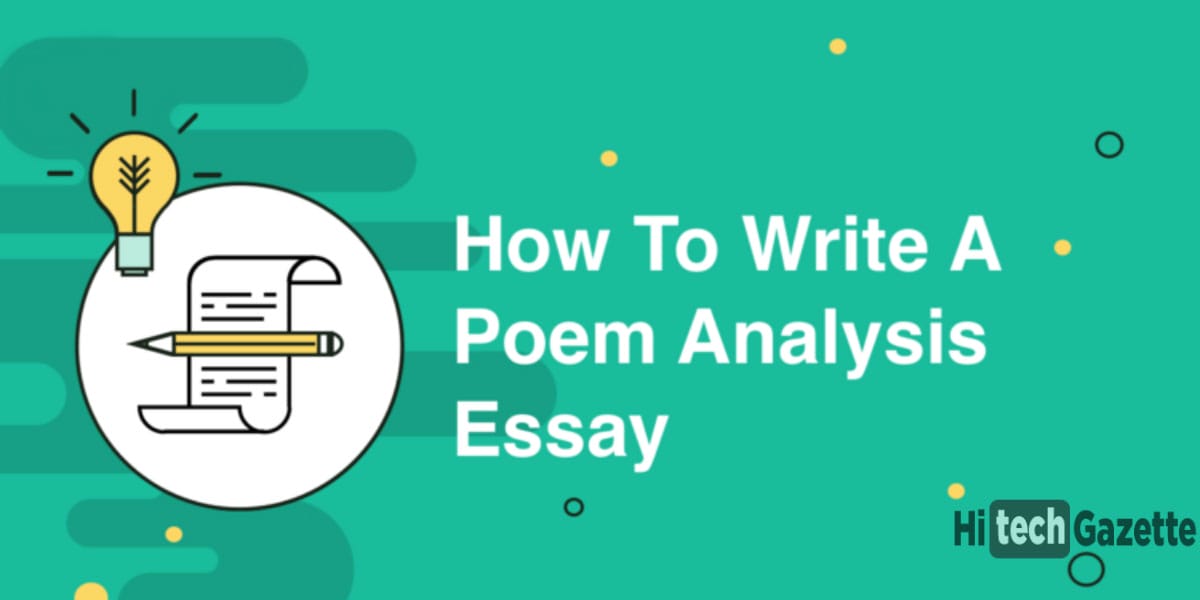A poetry analysis essay looks to assess how well a reader understands a poem. The focus areas are often the main features of poems, including the writing style used in the poem, the structure of the poem, and literary devices and their impact on the poem. Poetry analysis goes a long way in helping students hone their poetry skills, help them gain a more in-depth insight into poems, improve and challenge their critical thinking skills and creative arts which are essential in their everyday life.
Whether it is Shakespeare poems or Geoffrey Chaucer poems, having the right guide will help you come up with an impressive paper.
Here are some tips for an excellent poetry analysis essay.
1. Read the Poem Multiple Times
Even if you read the poem word for word, the chances are high that you will not understand everything within the first reading. Read the poem at least twice, and most preferably loudly to enhance your understanding. Reading aloud will also help you get the real impression of the poem.
It is also recommended that you take notes in the process in order to capture all essential reactions and observations. Paraphrasing the poem’s lines will also enhance understanding as you challenge yourself to uncover the lines’ meaning by putting them in your own words and understanding.
In the process, look up the meaning of words that you may not be familiar with. Ignoring them might lead you to not understanding the meaning of the words. Research at this point will be essential.

2. Identify the Subject and Theme of the Poem
After reading and understanding the individual meaning of the poem’s lines, you will be in a better position to establish what the subject is. Ask questions such as ‘when,’ ‘what,’ ‘where,’ and ‘who’ to help you understand what the poem is really about.
Remember that poetry analysis is geared at understanding the poem’s theme, the poet’s writing style, and the structure. Establishing the poem’s subject will help you come up with themes that will fulfill the objective of the analysis.
Answers to the above questions will help you determine the poem’s message, which is the theme.
3. Evaluate the Tone to Establish the Writing Style of the Poet
Poets use tone and mood to support the theme or subject of a poem. The tone and mood of a poem are considered the writing styles, and it is the element behind the emotions evoked by a poem. Poets use a wide range of devices to develop the tone of a poem, including metaphors, symbolism, hyperbole, similes, and personification. The choice of words used in a poem also determines the tone and writing style.
Use figurative language and the tools mentioned above to determine how the tone of the poem supports the overall message.
4. Structure
The structure of the article is a yet critical element to look at when doing poetry analysis. The structure of a poem describes how the writer presents it to the reader. When evaluating the structure, you are talking about the length of the poem in terms of the stanzas, rhyme scheme, consistency, and the size of the lines in the stanzas. Poems that have a strong structure are featured by distinct flow from the beginning to the end of the poem, and how easily the writer can communicate his message in the poem.
5. Articulate the Analysis into One Paper
A breakdown of the poem into different parts of analysis will help you present the idea of the poem in a complete paper. Note that a poetry analysis takes the structure of any other academic essay. This means that it should have an introduction with a thesis statement. This should be followed by the body, which can include several paragraphs with ideas supported with evidence and an effective conclusion.
A poetry analysis essay should start with a hook that will grab the attention of the reader. A hook can take the form of a rhetoric question, a quote from the poem, or a statement linked to the poem’s subject or themes.
Once you introduce using a hook, take a stand, for instance, by supporting a theme that really stands out in the poem. Write a thesis statement, and this will form the foundation of the poem.
To write an effective conclusion for your poetry analysis essay, use evidence from the body paragraphs to support your statement. Conclusions are excellent when supported by substantial evidence, which will bring your writing to a strong ending.
Take Away
Poetry analysis essays can be challenging to write, especially if you do not follow the first step, which is reading. Before anything, read the poem until you understand it for your work to flow smoothly. The guide above will help you draw a quality poem analysis essay.



